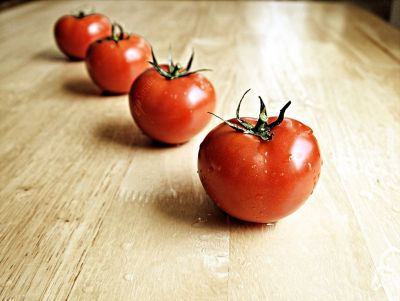The current approach in various manufacturing fields relies heavily on
limited natural resources and is generally not environmentally friendly.
There are many new technologies available that offer a sustainable
alternative, but these are not yet widely accepted and/or used by
industry.
With this in mind, the EU-funded
TRANSBIO project is developing different biotechnological approaches for transforming by-products into value-added bioproducts. The project has used by-products from the fruit and vegetable processing industry representative for the Ebro Valley and Costa-Rica to produce plastics (PHB), bio-based succinic acid and enzymes for detergent application.
First, the consortium characterized and selected appropriate by-products from fruit and vegetable processing industry, followed by adapted pre-treatment and enzymatic hydrolysis procedures to obtain fermentable sugars for microbial fermentation. In order to obtain a broad application potential for the by-products selected, the project partners are investigating two different fermentation strategies – submerged cultivation (SmF) in liquid media (bacteria, yeasts) and solid state fermentation (SSF) (fungi). In what PHB is concerned the main aim was the screening and selection for appropriate wild-type strains of Ralstonia eutropha and other strains able to produce it. One wild strain has been selected for each of the proposed fermentation substrates and will be used for the scaling-up process.
A total of 692 yeast isolates were obtained, 450 from the fruit by-products and 242 from the vegetables. Two different strains were selected, which were successfully tested in controlled bioreactors, and were able to produce higher amounts of succinic acid than the reference strain used. Also enzymes obtained in the supernatant from solid state fermented by-products were characterized and once a proper stabilization method had been determined, partner Tecnalia will be able to start the semi-scale test and check the enzymes under household laundry conditions.
The consortium partners are performing environmental and economic impact analyses to assess the sustainability of the TRANSBIO procedures and products. Project outcomes will increase the competitiveness of the European biotechnology industry and promote widespread uptake of more sustainable industrial practices.

